
I Love Nature
De eerste tekstuitgave van theater- en filmmaker, schrijver, wildplukker en ecoseksueel/klimaatactivist Nora Ramakers, die in haar werk de erotische essentie van de natuur poogt bloot te leggen.
Language: Dutch

De eerste tekstuitgave van theater- en filmmaker, schrijver, wildplukker en ecoseksueel/klimaatactivist Nora Ramakers, die in haar werk de erotische essentie van de natuur poogt bloot te leggen.
Language: Dutch
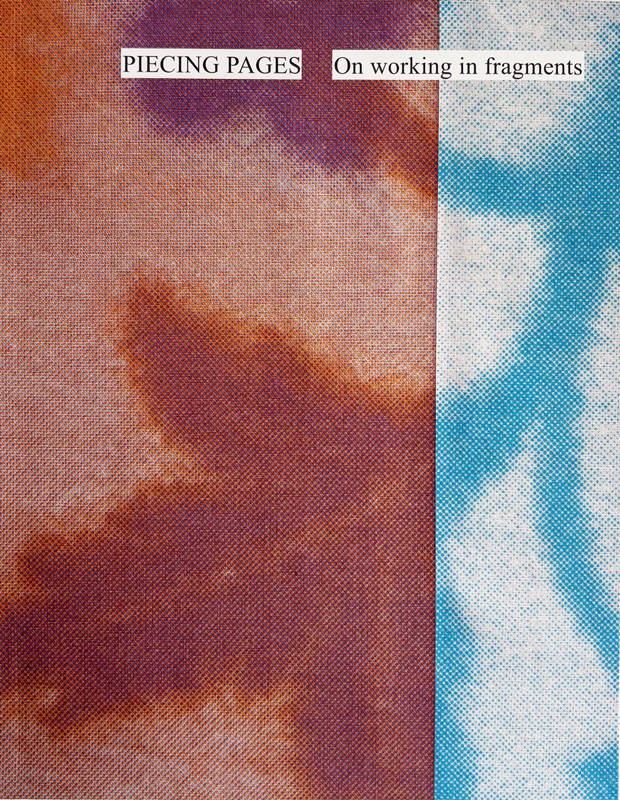
Piecing Pages is a (visual) reader which collects the work of fifteen artists, writers and designers across twelve contributions. Each contribution offers insights into a practice or research project that in some way embodies the notion of working in fragments. Together, these contributions unravel how a traditional women’s craft technique continues to influence and inform the fragmented working methods of designers, artists and writers today.
With contributions by Asefeh Tayebani, Hanka van der Voet, Jess Bailey and Sharbreon Plummer, Joke Robaard, Linda van Deursen, Lucy R. Lippard, Melissa Meyer and Miriam Schapiro, Rietlanden Women’s Office, Ronja Andersen, Rosita Kær, Susu Lee and Youngeun Sohn
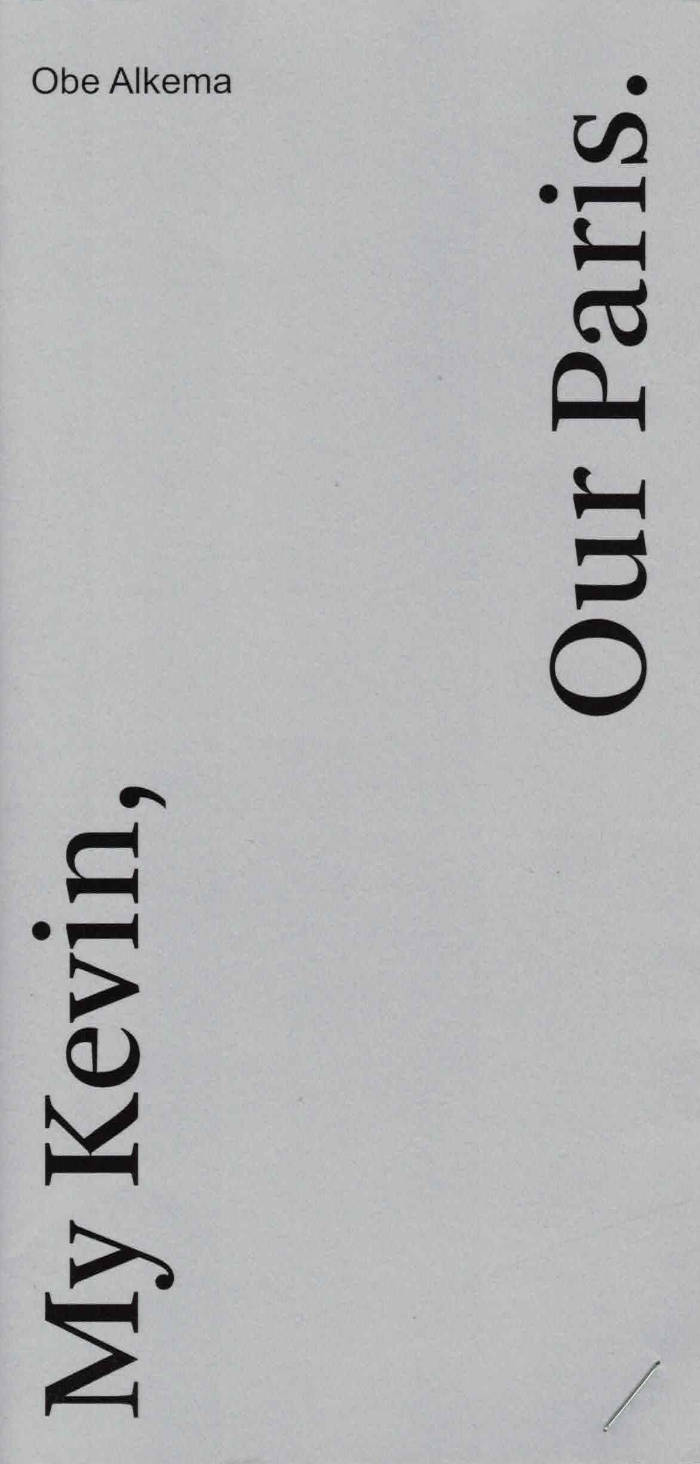
In the fall of 2017, Obe Alkema got acquainted with the American poet Kevin Killian, first at the New Narrative conference at UC Berkeley, then at the Poets & Critics Symposium in Paris that was all about his poetry. A year and a half later, Alkema traveled back to Paris, this time as a participant of a writing residency. He was there to research the landscape of memory, but more than he expected and initially realized, Kevin’s death the previous month (June 2019) affected his return. Besides inevitable, mourning and remembering became obsessions for Alkema, as he shows in ‘My Kevin, Our Paris’, a memoir about Kevin Killian (1952–2019), but especially about his Kevin and their Paris.
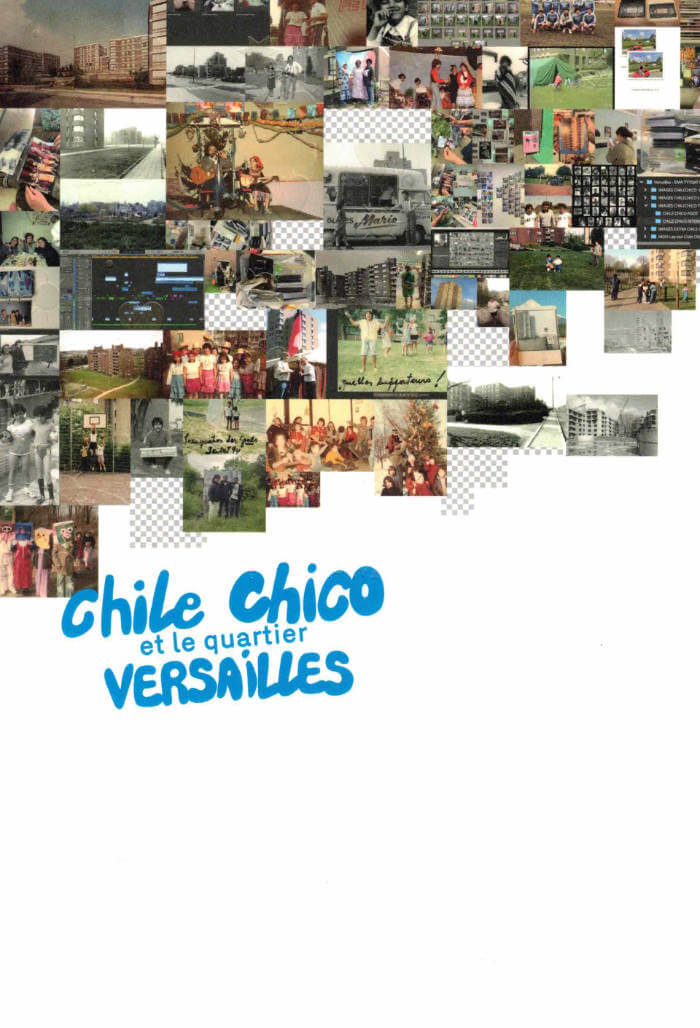
Chile Chico et le quartier Versailles, c'est une exploration qui inventorie, interroge et révèle les mémoires invisibles en listes et en collections. Une mémoire qui ne soffre pas en bloc, qui résiste, se fragmente, se transforme. A travers cette archive collaborative, nous avons voulu capter ces va-et-vient ď'un passé qui dialogue avec le présent, des images qui oscillent entre Vintime et le collectif.
Le point de départ de cette fabrique visuelle, c'est lexil des Chilien.nes, débarqué.es dans les années 70, qui se tissent une nouvelle vie sur le sol de Neder-Over-Heembeek, dans le quartier Versailles à Bruxelles. Ces trajectoires, arrachées à un ailleurs, s'ancrent dans des espaces rêvés comme de transit pour devenir des lieux d 'appartenance, où lexil se mue et les racines finissent par se déployer. A ces récits se greffent d'autres histoires, d'autres trajectoires. Un quartier comme un carrefour, ou les individualités se rencontrent, où les vies se croisent et s'allient.

This book follows my journey of launching, growing, and ultimately failing in the adult entertainment industry. It explores society’s complex relationship with porn and sex education, the challenges of entrepreneurship, and the struggles of working in a deeply stigmatized space. Sometimes funny, often dramatic, and always surprising, it offers an unfiltered look at the business side of porn and what it really takes to challenge the status quo.

This bootleg edition collects scanned copies of Monique Wittig's writing. It includes; The Lesbian Body, Les Guérillères, The Opoponax, and Lesbian Peoples: material for a dictionary— In true bootleg style, punk enough to carry the truly radical words of Wittig: scans, a little grainy, with marginalia of unknown origins. Now, we can dress ourselves in the ravishingly erotic, violent splendorous brilliance to become baby Wittigs.
This edition was assembled out of a deep love of Wittig's work by Chloe Chignell.
Monique Wittig was a French author and feminist theorist particularly interested in overcoming gender and the heterosexual contract. She published her first novel, L'opoponax, in 1964. Her second novel, Les Guérillères (1969), was a landmark in lesbian feminism.

Cold Heaven joins two plays, Sometimes Dead is Better and Bye Bye Brunhilde, with an introduction by the author. Both plays have the dissonant, radical beauty of poetry.
As Roy writes in her Introduction to the book: “Plays are porous, written to be entered… Plays provide a frame for studying collisions… Language can be an (uncontrollable) character, moving in on the others, creating a stir… [I]n a play… the private self disappears. Writing can move out into the dead zone between any two people and test what is there.”
Imagine a Punch and Judy as lesbians whose domestic and sexual squabbles are paraded in the language of brilliant poets; these are Camille Roy's Fear and Technique. A wonderful play.
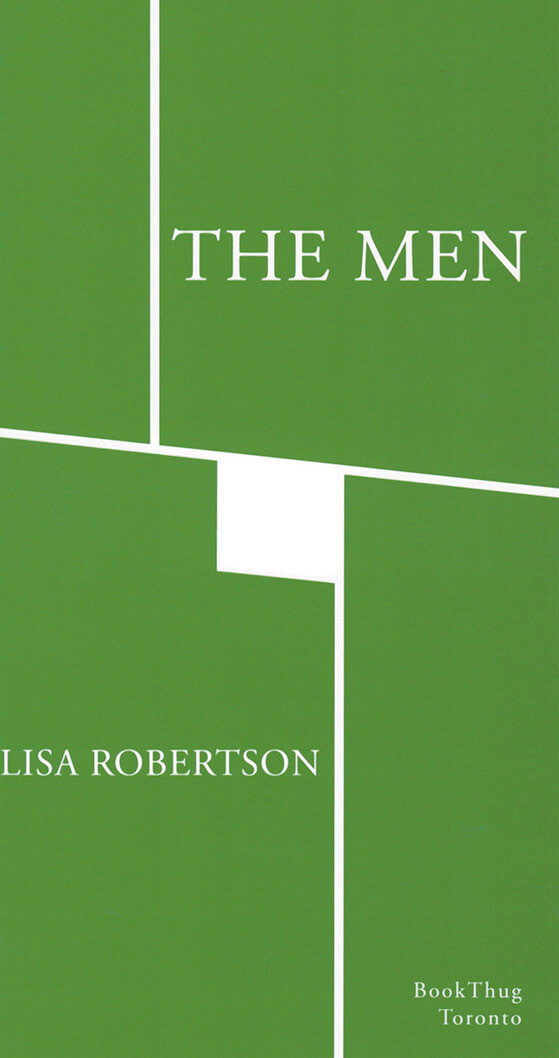
The Men explores a territory between the poet and a lyric lineage among men. Following a tradition that includes Petrarch's Sonnets, Dante's work on the vernacular, Montaigne, and even Kant, Robertson is compelled towards the construction of the textual subjectivity these authors convey-a subjectivity that honors all the ambivalence, doubt and tenderness of the human. Yet she remains angered by the structure of gender these works advance, and it is this troubled texture of identity that she examines in The Men.
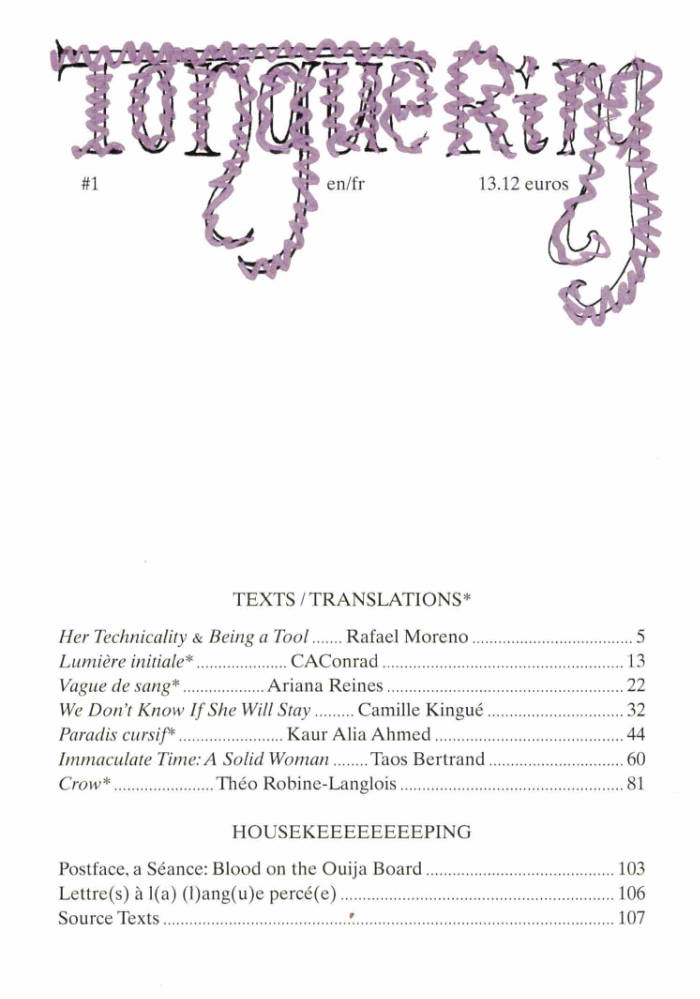
Aodhan Madden, Claire Star Finch
Oh oh this is the first issue of Tongue Ring, a journal of experimental writing in English & French, with original contributions and translations of texts* by Ariana Reines*, CAConrad*, Camille Kingué, Kaur Alia Ahmed*, Rafael Moreno, Taos Bertrand, and Théo Robine-Langlois*.
Vous voyez, c’est ça mon genre. Je ne sais pas ce que c’est.
Mais c’est mon genre. J’ai cet esprit en moi—qui est très ému
par la féminité. Je pourrais me mettre à pleurer. Je veux poser
mon manteau par terre pour la laisser marcher dessus
—Ariana Reines
Premier numéro de la nouvelle revue fantastique et bilingue (FR + EN) d’écriture expérimentale Tongue Ring, avec des contributions originales ainsi que des traductions* de textes de Ariana Reines*, CAConrad*, Camille Kingué, Kaur Alia Ahmed*, Rafael Moreno, Taos Bertrand, and Théo Robine-Langlois*.